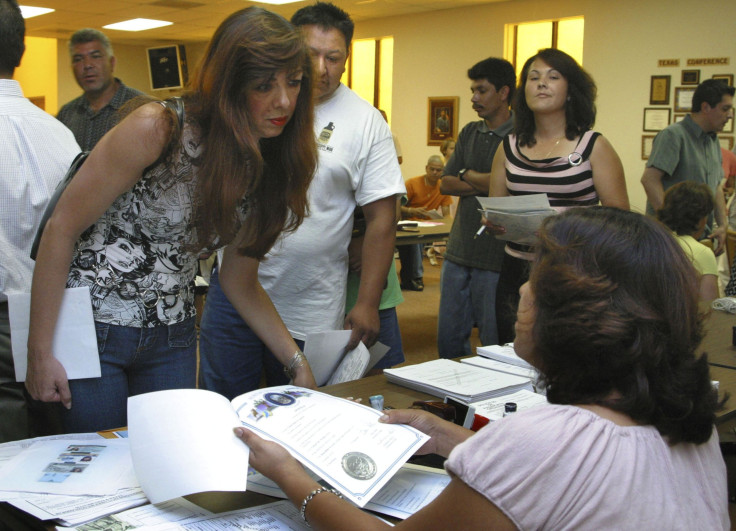Immigration Reform 2015: Texas Attempting To Block US-Born Children From Birth Certificates If Mothers Entered Country Illegally, Say Immigrants, Lawyers

For years, parents who enter the U.S. illegally have been able to acquire birth certificates for their U.S.-born children using photo ID cards issued by their local consulates. But since 2013, immigrant families in south Texas have been denied birth certificates because state registrars are no longer accepting these consulate-issue forms of ID, say a number of immigrants.
“We need a U.S. license we don't have; a [Mexican] passport we have, but with a visa we don't have,” Hiram Ramírez, a 28-year-old mother of three, told the Los Angeles Times in a report published Saturday. “It's not fair. She has a right to her birth certificate. What are we supposed to do?”
Ramírez, a native of the northern Mexican border city of Reynosa, in Tamaulipas state, crossed into the Rio Grande Valley of Texas illegally to start a life in the Texas city of McAllen. The 28-year-old married stay-at-home mom said she was able to obtain birth certificates from the Texas Department of State Health Services (DSHS) for her first two children, Alejandra Medno, 3, and Esli Mendo, 14, using her consulate-provided identification card and Mexican voter registration card.
But when she tried to get a birth certificated for Dulce, her recently born third child, she said she was turned away by the state registrar in downtown McAllen because she didn’t have any U.S.-issued documents.
Anyone born in the United States is entitled by the 14th Amendment of the Constitution to U.S. citizenship, including children born to mothers who entered the country illegally, but the law doesn’t bar the deportation of illegal migrants themselves, creating a complicated situation where parents could be deported while their children retain legal status. To remedy the immediate needs of children of undocumented parents, state registrars have typically accepted consulate-provided ID to issue birth certificates, which are vital for these U.S.-born children to access medical care, state benefits and school enrollment.
But Texas has begun to increase barriers to undocumented immigrants seeking birth certificates for their native-born children. Last month, the Dallas County Clerk's Office announced it would no longer accept so-called matriculas, official forms of ID issued by Mexican and Central American consulates. Civil rights lawyers say this is a response to the Obama administration's efforts to protect millions of immigrants from deportation, especially parents of children born in the U.S.
A lawsuit filed in May on behalf of 19 parents and 23 children is challenging Texas state officials on this issue.
“Officials have refused and continue to refuse to provide the adult plaintiffs with certified copes of the birth certificates for their Texas-born sons and daughters,” said the suit, filed in U.S. District Court in Austin. “The lack of a birth certificate, in turn, is causing serious harm to all plaintiffs.”
The issue has popped up in Arizona, too, where lawmakers have tried unsuccessfully to pass laws denying or restricting the issuance of birth certificated to native-born children of mothers who entered the country illegally. The problem most affects Latinos who hail from Mexico and Central America and are living in U.S. border states.
“By denying these birth certificates, DSHS is denying these children their U.S. citizenship,” said state Sen. Juan "Chuy" Hinojosa, a Democrat from McAllen, in a letter sent on Wednesday to Texas DSHS Commissioner Kirk Cole. “These children were born in the United States, are United States citizens, and are entitled to receive their own birth certificates.”
© Copyright IBTimes 2024. All rights reserved.






















